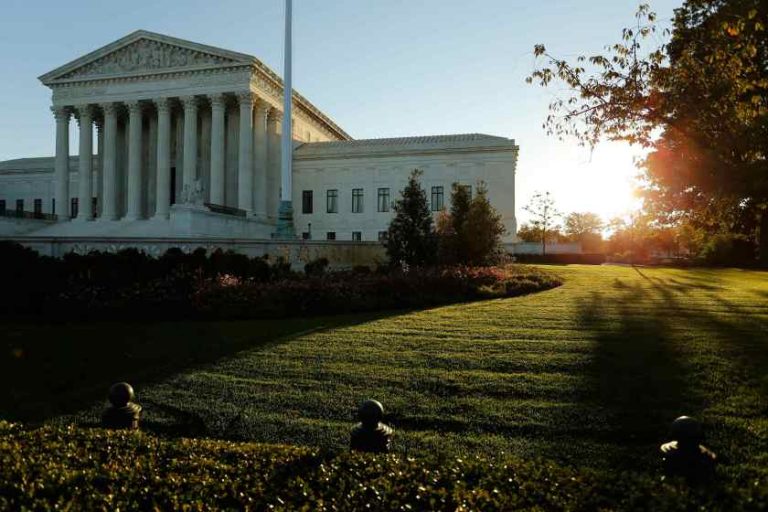By Libby Hobbs
The U.S. Supreme Court ruled that race-cautious admissions were unlawful one month ago after examining cases at Harvard and the University of North Carolina. In both cases, the plaintiffs were Asian Americans who claimed admission losses to less qualified individuals.
“I have a lot of friends who, of course, don’t like [affirmative action] because it’s not for us … we feel like we’re punished for working hard,” Tracy Chen, a student at the University of Georgia, said.
As eyes turn toward the Asian American community, it remains split on what to believe. Nearly three-in-four Asian Americans say they have heard the phrase “affirmative action,” according to PEW research. About half, 53%, who have heard of affirmative action say it is a good thing, but only 21% of Asian adults think race or ethnicity should be considered in admissions decisions.
Sudhir Agarwal, President of the Asian Pacific American Council of Georgia (APAC) and Senior Director of Tata Consultancy Services, is one of the adults who believe admissions should be based on hard work and not any particular race.
“We are not letting the people who are smart, intelligent [and] hardworking get what they really deserve,” Agarwal said.
He thinks affirmative action could reduce the value of Ivy Leagues in the future because of professors who reduce their standards for students that cannot meet their expectations. Chen also mentioned a backlash to affirmative action, which was potentially handicapping people of color because of accusations that they only earned their positions from affirmative action.
PEW research shows further variety in affirmative action depending on subgroups, like ethnicity and immigration identity. More U.S.-born Asians have heard of affirmative action than Asian immigrants, and more Filipino or Japanese adults have heard of it than Vietnamese Americans.
Hannah Oh, who is also a student at the University of Georgia, claimed it was important to remember that Asian Americans are not a monolith, emphasizing the existing cultural variety and diaspora. Bentley Hudgins, an organizing and political consultant, agreed.
“AAPI is a huge umbrella,” Hudgins said. “When we talk about affirmative action, we need to be very clear about how it can impact different groups and how different groups of people have come to America.”
Oh looked to university systems that do not practice race-cautious admissions, like those in California, for answers. She said affirmative action bans did not increase diversity, with a lower amount of racial and ethnic minority students coming into the schools.
Black and Latino enrollment at UCLA and UC Berkeley fell by 40% in the first year of the affirmative action ban, according to a study in 2020 by Bleemer.
“Everybody deserves access to equitable education,” Oh said. “We need these race-conscious admissions for greater generational wealth and diversity in the workforce.”
The University System of Georgia also does not practice race-cautious admissions. It stopped affirmative action in 2000 after three white women were denied admission to the University of Georgia, according to Johnson v. Board of Regents of the University of Georgia.
The difference in how affirmative action impacts Black and LatinX communities compared to the Asian American community concerned Oh and Victoria Huynh, who is on the White House Advisory Commission for Asian Americans, Native Hawaiians, and Pacific Islanders (AANHPI).
“I hate that the Asian American community is being used as a wedge between different racial communities. This is an opportunity now for our families to stand up and speak up that we’re not a monolith, right?” Huynh said.
Chen ultimately holds a more complex view on affirmative action because she also recognizes her privilege. She knows that many Asian people grew up with the privilege of having parents that emphasize academics. However, she knows this assumption cannot be made for all.
“I think the flaw comes down to when schools assume that one ethnicity has the same upbringing,” Chen said. “That’s an assumption, and it can’t be placed on every single Asian person. I think that’s the flaw that affirmative action had.”
In a world post-affirmative action, both Oh and Chen think essays will be a major way to find stories in students that numbers cannot tell. Oh hopes admissions will be comprehensive and holistic, stressing socioeconomic status and geographic location.
Chen also believes campuses across Georgia should increase the diversity clubs offered on campus. She said part of the reason she chose UGA was because of the thriving Asian American community on campus compared to other Georgia schools.
“I see the importance of having diversity in school,” Chen said. “There just needs to be a different way to get that rather than just a multiple choice question of what race you are.”











